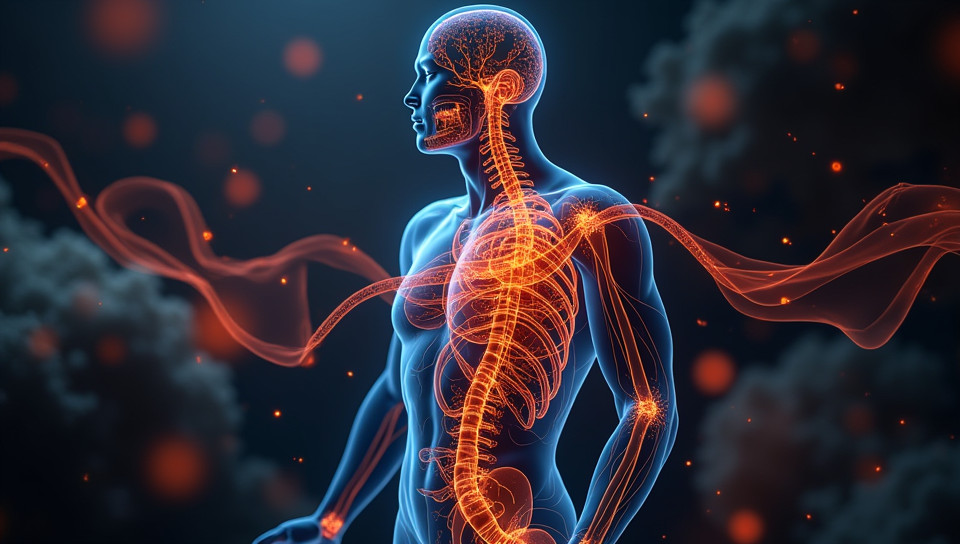Appetite modulation is influenced by the ECS pathway 87%

The Gut-Brain Connection: How Appetite Modulation is Influenced by the ECS Pathway
As we navigate the complexities of modern life, our relationship with food has become increasingly tumultuous. On one hand, we're constantly bombarded with advertisements and social media influencers promoting the latest diet trends and indulgent treats. On the other hand, our bodies are crying out for sustenance and nourishment to fuel our busy lives. But have you ever stopped to consider what's really driving your appetite? The answer lies in a complex interplay between hormones, neurotransmitters, and an often-overlooked system known as the endocannabinoid system (ECS).
Understanding the ECS
The ECS is a network of receptors and chemicals that plays a crucial role in regulating various physiological processes, including appetite, mood, and pain perception. Discovered in the 1990s by researchers at St. Louis University School of Medicine, the ECS has since been found to be involved in virtually every aspect of human health.
The Role of Cannabinoids in Appetite Regulation
Cannabinoids are a class of chemical compounds that interact with the ECS receptors. They're responsible for producing feelings of hunger and fullness, as well as influencing our motivation to eat. Anandamide and 2-AG are two endogenous cannabinoids that have been shown to increase appetite by stimulating the release of ghrelin, a hormone produced in the stomach.
The ECS Pathway: A Key Regulator of Appetite
Research has demonstrated that the ECS pathway is intricately linked with the hypothalamus, an area of the brain responsible for regulating hunger and satiety. When cannabinoids bind to their receptors in this region, they can either stimulate or inhibit appetite, depending on the specific circumstances.
- Increased ghrelin release
- Stimulation of the hypothalamus
- Modulation of dopamine and serotonin levels
- Interaction with other neurotransmitters and hormones
Implications for Appetite Modulation
Understanding the ECS pathway's role in regulating appetite has significant implications for our approach to nutrition and weight management. By targeting this system, we may be able to develop more effective treatments for conditions such as obesity, anorexia nervosa, and bulimia.
Conclusion
The relationship between our appetites and the ECS pathway is a fascinating area of research that holds promise for improving human health. As we continue to unravel the intricacies of this system, we may uncover new strategies for managing hunger and satiety, leading to improved overall well-being and quality of life.
- Created by: Ren Ōta
- Created at: Dec. 3, 2024, 12:38 p.m.
- ID: 16452









